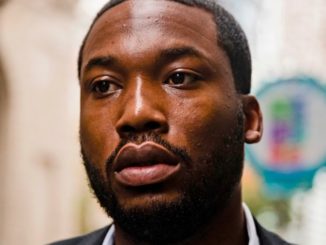
Investors had much to celebrate on Friday when the stock market experienced an upward move for the Dow Jones and S&P 500. However, the good news comes at a time when the U.S. is working to recover from COVID-19 orders to close businesses and stay at home and nationwide uprisings that have erupted in protest of police brutality.
While many white investors are securing a financially stable future, the black community is still grappling with disparities in employment, home ownership, quality education and financial literacy.
Black Community Has Less Stock Holdings
Only 31 percent of black families have stocks in comparison to 61 percent of white families, as documented in the Federal Reserve’s 2016 Survey of Consumer Finances, first reported by Yahoo Finance. Most black investors that have stocks only possess a median of $12,000 in stocks compared to $51,000 for white investors.
Black People Have The Highest Unemployment Rates
Since COVID-19, about 10 percent of black people lost their jobs. However, even before the pandemic hit, only 59 percent of black people held jobs.
The highest unemployment rates for the demographic is in the District of Columbia at 11.8 percent, Pennsylvania at 8.9 percent, Illinois at 8.8 percent, followed by Louisiana and Mississippi, according to the Economic Policy Institute. The unemployment rate for black people is more than twice as much as for white people.
The pandemic also forced 2 out of 5 black-owned small businesses to close, in comparison with 1 out of 5 for white business owners, as analyzed by the University of California, Santa Cruz.
Median Net Worth For Black Families 10 Times Lower
What’s even more alarming is that the median net worth of black families is 10 times less than the median white family. Black families hold a median net worth of $17,600, compared to $171,000 for white families, per the Brookings Institution and the Hamilton Project.
More Black Families Are Renting
Another issue that black communities are faced with is the lack of access to home ownership. The Pew Research Center revealed that over 58 percent of black people rent.
Systemic Barriers Created The Wealth Gap
These disparities can be attributed to a history of discrimination and racism that has systemically denied black people equal and fair consideration and treatment as their white counterparts.
The systemic barriers include institutions refusing to provide service or hire black people and creating glass ceilings for black employees. In pursuit of upward mobility, such as buying a home, being accepted into a prestigious college and starting a business, black people are often met with standards that fail to consider the lack of resources and decades of injustices subjected on to black people. The black community still has to deal with the aftermath of slavery, jim crow segregation laws, and now, racial profiling.
Once thought of as a way out of poverty and a key to future success, higher education is now imposing a strain on the black community as they come to realize that a white person with a high school diploma is more likely to accumulate wealth than a black person with an advanced degree. Many of the college graduates are leaving school with high debt, defeating their chances of getting ahead.
What Needs To Be Done
In order for the wealth gap to decrease, businesses will have to be more vigilant in hiring black people at every level, including the boardroom. Also, if a black person has an advanced degree, the business that the black candidate is applying for must recognize that degree and match the person to the appropriate level. No more hiring black MBAs for entry level positions to assist white executives who don’t have college degrees.
The current requirements for home ownership would have to be adjusted to consider the historic impressions left on the black community. Slavery and jim crow laws limited opportunities for black people to advance. Not only were they excluded from quality education, but they also were excluded from productively engaging in U.S. commerce.
It is becoming more evident that the next step after the nationwide protests is to actively work to ensure that black people, who helped build America, are able to have equal footing with white people in a notoriously marginalizing society.



